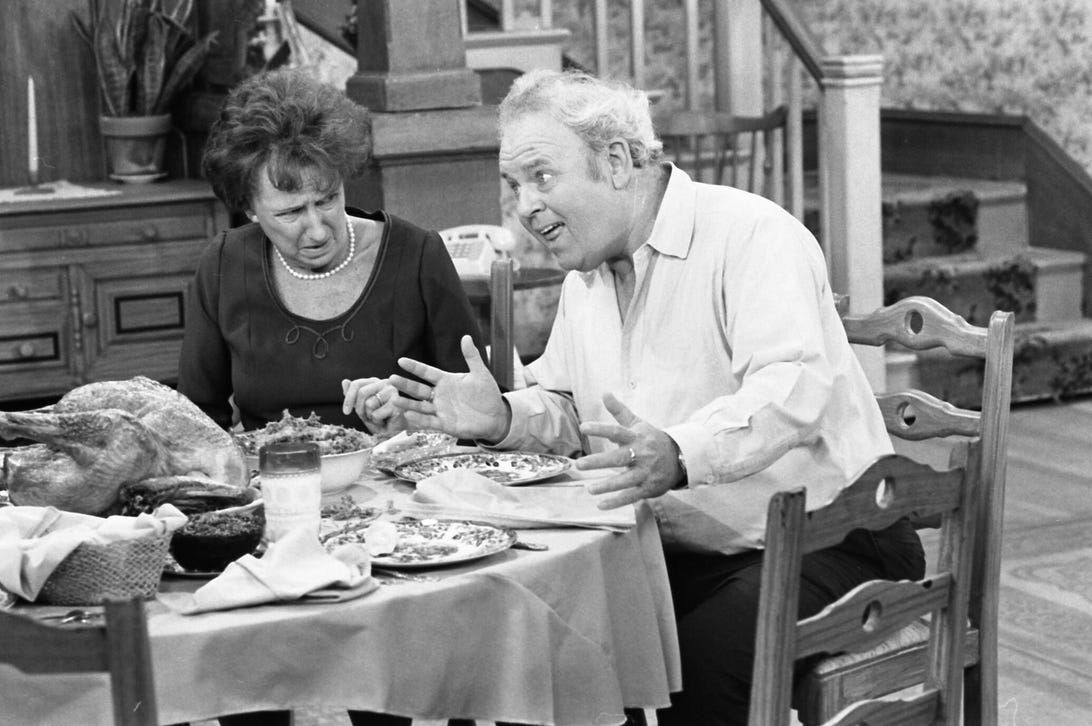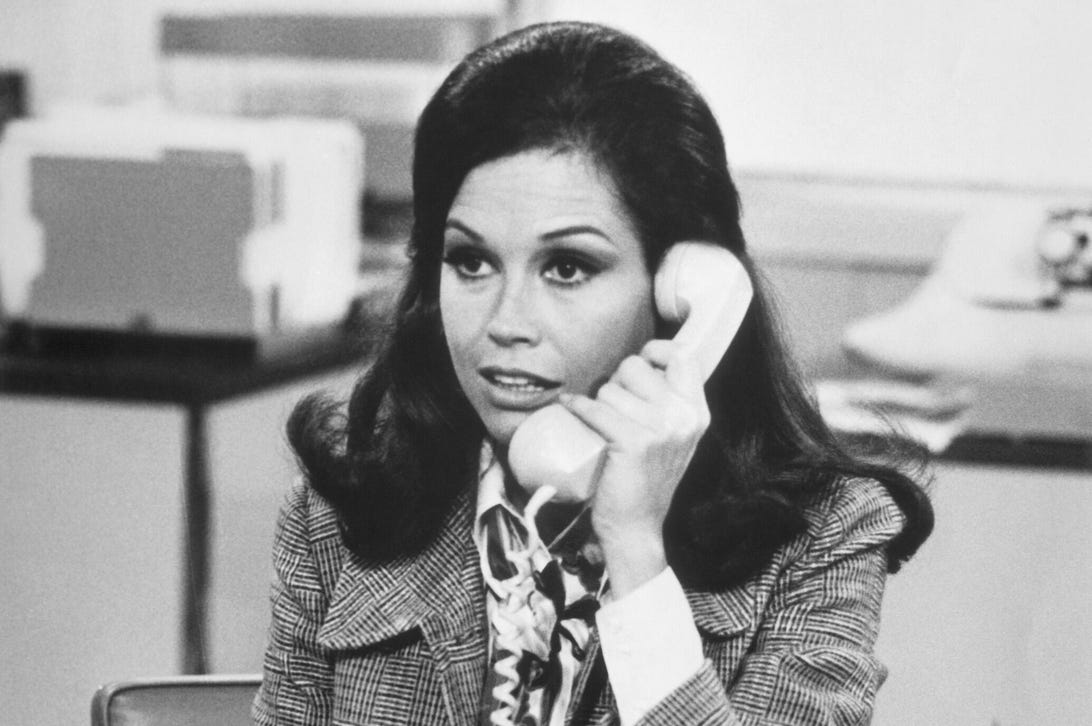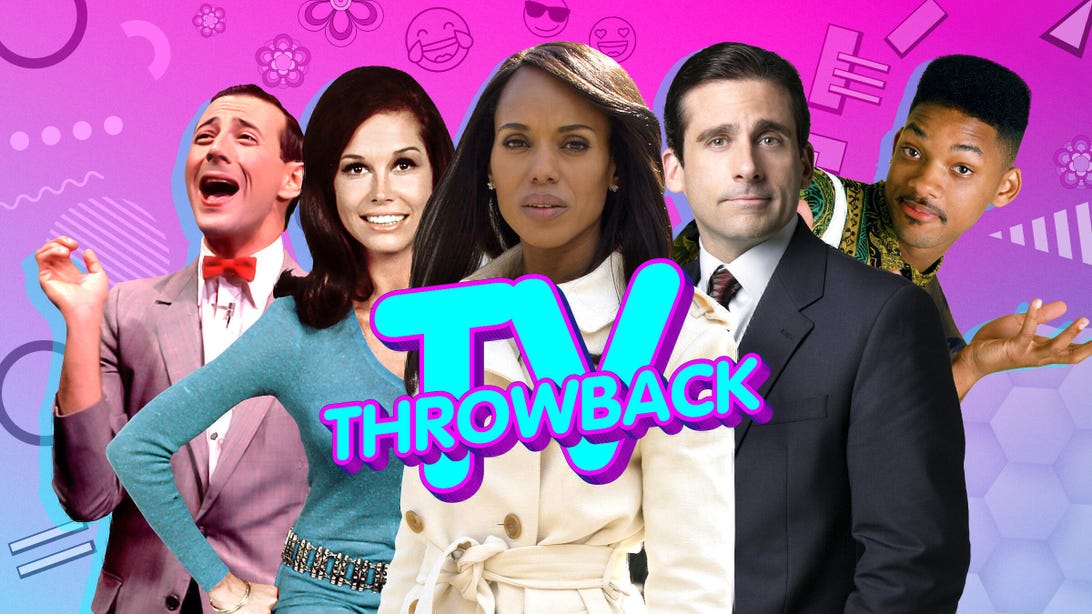
Your Favorite Comedies Owe a Lot to These 1970s Sitcoms
How All in the Family, The Mary Tyler Moore Show, and M*A*S*H forever changed the television landscape

Let me just get this out of the way at the top. I was not alive in the '70s. In fact, I wasn't even alive in the '80s. I was born in 1990, and grew up loving Pokémon, Power Rangers, and all the usual things you associate with millennial childhood. But as much as I loved playing with Pogs while watching my VHS tapes of Sailor Moon, I also cherished my marathons of Three's Company, M*A*S*H, and The Jeffersons.
I was raised almost as much on these long-finished shows as I was on the big hits of the '90s, not because these were the shows my parents put on, but because the series were, even decades later, just plain funny. And now, nearly every time I tune into one of my favorite modern-day comedies, I can't help but be reminded of one of the TV classics I'd watch in syndication and feel grateful for the accidental education I gave myself growing up; that's because it's impossible to appreciate the way comedy on TV has evolved without understanding the strides that were made during the '70s.
It's not necessarily that the '70s comedies as a whole were objectively better than eras that came before or after (although you could make the case for certain shows' superiority). But since TV was still in its adolescence, the shows of the '70s were the ones that really challenged the status quo and expanded the possibilities for what a sitcom can look like. This decade of experimenting with and redefining what the medium could do kicked off with three groundbreaking series: The Mary Tyler Moore Show, All in the Family, and M*A*S*H, which debuted on CBS in 1970, 1971, and 1972, respectively.

All in the Family
Ron Eisenberg/Michael Ochs Archives/Getty ImagesThe celebrated family sitcom All in the Family came from Norman Lear, a '70s super-producer. (Think the prolificness of Ryan Murphy, but if instead of doing prestige camp, Lear did broad family comedies with a political edge.) Lear's expansive body of work — which also includes One Day at a Time, The Jeffersons, Sanford and Son, Good Times, and Maude — popularized the idea that sitcoms could be a vehicle for social satire. While it's impossible to imagine a character like All in the Family's patriarch Archie Bunker (Carroll O'Connor) on TV now, with his penchant for bigoted rantings and offensive remarks, viewers at the time had never seen a series reflect the real-world political debates the way they did when Archie argued with his son-in-law Mike (Rob Reiner) about racism, abortion, the Vietnam war, and many other sensitive topics that previously had been thought unsuitable for TV. All in the Family, as well as Lear's sitcoms that followed, opened up TV comedy as a place to have serious political discourse without having to sacrifice laughs in the process. When we watch the employees on Superstore debate about workers' rights, the Johnsons on black-ish discuss colorism, or the Alvarezes on Lear's 2017 One Day at a Time reboot have an open conversation about gender identity, we see the groundwork Lear laid in the '70s, which showed that sitcoms could tackle these topics with both humor and sensitivity.
https://www.tvguide.com/news/tv-throwback-best-shows-to-rewatch/">TV Throwback: The Best Shows to Rewatch Right Now
Premiering four months prior to All in the Family, the equally pioneering The Mary Tyler Moore Show, created by James L. Brooks and Allan Burns, paved the way for shows like 30 Rock, Girls, and even Crazy Ex-Girlfriend with its then-radical decision to tell poignant stories about a female protagonist who wasn't defined by her search for love or by her ties to a traditional family unit. (ABC's That Girl is generally heralded as a forerunner to Mary Tyler Moore, but Marlo Thomas' Ann Marie had a stable boyfriend and worked various temp jobs compared to the protagonist depicted by Mary Tyler Moore, who had a consistent career and whose brief romantic relationships came and went since, per Moore, "no one was good enough for her.")

The Mary Tyler Moore Show
Bettmann/Getty ImagesIn the series, Moore starred as Mary Richards, a young woman working as a producer of a news program in Minneapolis. Alongside Mary was an ensemble of friends, neighbors, and coworkers who were so much more than sidekicks for Moore to play off of and were given motivations, dreams, and regrets of their own. (It's a testament to how well developed the show's supporting characters were that three got their own spin-offs: Valerie Harper's Rhoda, Cloris Leachman's Phyllis,and Ed Asner's Lou Grant.) Mary's social circle wasn't limited to her coworkers, but the show prioritized working relationships in a refreshing way, setting the template for workplace sitcoms that followed, from WKRP in Cincinnati to The Office. The series also showed Mary as a character whose primary focus throughout the series really was her career; the sitcom ended with her single, so as not to make it seem as though a romantic relationship was her main goal all along.
https://www.tvguide.com/news/the-mary-tyler-moore-show-hard-work-of-being-alone/">The Mary Tyler Moore Show Captures the Hard Work of Being Alone
Mary Tyler Moore eschewed broad, easy punchlines in favor of the humor that arises in one's everyday reality — including both the joys and the struggles. During its seven-season run, the series pushed boundaries with episodes about equal pay and workplace discrimination, made references to Mary having casual sex and being on birth control, and revealed that Phyllis' brother is gay — news that a relieved Phyllis embraced since that meant her brother wasn't dating her rival Rhoda. Now, the blueprint laid out by The Mary Tyler Moore Show seems so familiar, but back then this was revolutionary.

M*A*S*H
Keystone/Getty ImagesThe same can be said for M*A*S*H, the Larry Gelbert-created series that blended comedy and drama through the stories of soldiers stationed at an army surgical hospital. The first truly successful dramedy (and boy, was it successful), M*A*S*H allowed its characters room to grow and evolve over its 11 seasons, delivering storylines that tapped into the hearts of its heroes rather than depicting them as figures trapped in amber or ones with no complex inner worlds. While the Vietnam War waged on in the real world, the show was set against the backdrop of the Korean War, which had ended two decades earlier, and the series didn't shy away from the dark realities and wastefulness of warfare, switching from lighthearted sitcom to somber drama at a moment's notice. M*A*S*H also pushed the boundaries of the format further than any series before it thanks to fearless experimentation with narrative structure, resulting in some of the show's best episodes, such as the black-and-white documentary-style of Season 4's "The Interview" and the first-person perspective of Season 7's "Point of View." Looking back, it's easy to see how M*A*S*H's success not only proved the previously untapped viability of the dramedy, but also inspired series like Scrubs and Community to take more avant-garde approaches to episode structure.
Now, 50 years after the sitcoms of the '70s first began experimenting with the format, the TV comedy has been refined. It's a tricky balance to strike, simultaneously delivering feel-good comfort, emotional catharsis, grounded characters, and comedy, but when done right, it's resulted in some of my favorite sitcoms of all time, like Parks and Recreation, Brooklyn Nine-Nine, orSchitt's Creek. It's easy to trace back their roots to The Mary Tyler Moore Show, All In the Family, M*A*S*H, and so many other '70s sitcoms I grew up with — shows that proved TV comedies can do so much more than make you laugh; they can make you feel and think, and sometimes that's the best medicine of all.
The Mary Tyler Moore Show and M*A*S*H are available to stream on Hulu. Check out more great '70s series to watch here.
Looking for more shows to stream? Check out TV Guide's TV Throwback, recommending the best shows to rewatch — or to discover for the first time — from 1970 through the present day.

